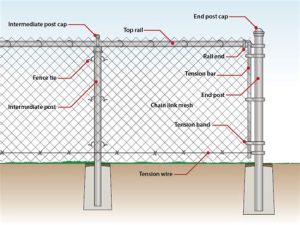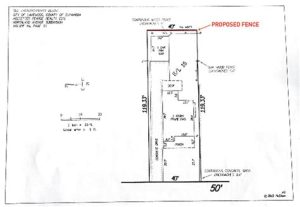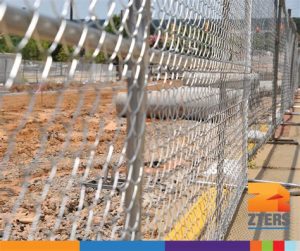Explore the essential aspects of fence installation licensing, including requirements, application processes, training criteria, and the significant benefits of obtaining a license.Fencing can enhance privacy, security, and aesthetics for residential and commercial properties, but the process of installing a fence in Florida is not as straightforward as it may seem. Navigating the intricate landscape of licensing and regulation is essential for anyone looking to undertake this task. In this blog post, we’ll delve into the importance of fence installation licensing, outlining the specific requirements that prospective installers must meet. We’ll provide a detailed look at the application process, the necessary training and certification criteria, and the numerous benefits that come with obtaining a fence installation license. Whether you’re a homeowner planning an installation or a contractor looking to expand your services, understanding Florida’s fence installation licensing process is crucial for ensuring compliance and delivering quality workmanship. Let’s uncover the essential steps to becoming a licensed fence installer in the Sunshine State.
Importance of Fence Installation Licensing
Fence installation is a crucial aspect of property development and maintenance, providing security, privacy, and aesthetic appeal. However, the importance of fence installation licensing cannot be understated. Obtaining a license not only ensures that a contractor possesses the necessary skills and knowledge but also helps maintain industry standards for safety and compliance.
First and foremost, a licensed fence installer demonstrates their commitment to professionalism. Licensing typically requires compliance with state regulations, which ensures that installations adhere to local codes and safety requirements. Therefore, hiring a licensed professional reduces the risk of substandard work that could lead to future hazards or costly repairs.
Moreover, licensing acts as a form of protection for consumers. When a contractor holds a valid license, clients can be more confident in their credentials, having verified their experience and competency.
Requirements for Obtaining a License
Obtaining a fence installation license in Florida is essential for ensuring that contractors meet the standards necessary for safety, compliance, and professionalism. The requirements for obtaining a license may vary depending on the type of work you plan to undertake, but several foundational elements are consistent across the board.
1. Minimum Age: Applicants must be at least 18 years old to qualify for a fencing license in Florida. This age requirement ensures that candidates possess the necessary maturity and responsibility for the job.
2. Background Check: A criminal background check is typically required to ensure the integrity and reliability of the contractor. Any felony convictions or dishonest conduct related to licensing may impact eligibility.
3. Experience and Skills: Most licensing bodies require a certain level of practical experience in fence installation. This may involve documenting the number of projects completed, as well as demonstrating proficiency in installation techniques and safety protocols.
4. Insurance and Bonding: Proof of liability insurance and bonding is usually a prerequisite for obtaining a license. This protects both the contractor and the client in case of accidents or damage during the job.
5. Examination: Finally, candidates may need to pass a licensing examination that tests their knowledge of fencing laws, regulations, and installation practices. This exam is designed to ensure that all licensed contractors are competent and knowledgeable about local requirements.
In summary, while the specific requirements for obtaining a fence installation license may vary by location, adhering to these foundational criteria will help aspiring contractors navigate the licensing process more effectively.
Application Process for License
Obtaining a Fence Installation License in Florida is a crucial step for anyone looking to pursue a professional career in fence installation. The application process is designed to ensure that all installers are qualified and compliant with state regulations. To start, applicants must gather the necessary documentation, which typically includes proof of experience, a completed application form, and applicable fees.
Once the documentation is prepared, applicants need to submit their application to the relevant state authority. This can often be done online or via mail, depending on the specific guidelines set forth by the Florida Department of Business and Professional Regulation (DBPR). After submission, applicants should expect to undergo a background check and potentially an interview process.
It’s important to pay close attention to the specific requirements outlined by the DBPR, as any missing information can lead to delays in processing. After the review process is complete, and if all criteria are met, the applicant will be notified of their license approval and receive instructions on how to pay any remaining licensing fees. This thorough application process not only ensures a high standard of quality and safety in fence installation but also enhances the professionalism of the industry in Florida.
Training and Certification Criteria
When it comes to becoming a licensed fence installer in Florida, meeting the training and certification criteria is essential. These requirements ensure that professionals possess the necessary skills and knowledge to perform their duties safely and effectively. The process typically includes a combination of hands-on training, coursework, and examinations.
To begin, aspiring fence installers often start with a structured training program that covers key topics such as installation techniques, material specifications, and relevant local regulations. Many contractors offer these programs, providing both classroom instruction and practical, on-site learning experiences.
After completing their training, candidates must successfully pass an examination that tests their understanding of the trade, including safety practices and relevant codes. Obtaining this certification not only enhances a professional’s credibility but also offers potential clients peace of mind knowing they are hiring a qualified installer.
| Training Component | Description |
|---|---|
| Coursework | Formal education on fence installation principles and safety standards. |
| Hands-on Training | Practical experience working with various materials and tools. |
| Examinations | Certification tests to assess knowledge and competence in the field. |
Benefits of Obtaining a Fence Installation License
Obtaining a Fence Installation License in Florida provides numerous advantages that can significantly impact a contractor’s career. First and foremost, a license demonstrates credibility and professionalism in the industry. Clients are more likely to trust a licensed contractor, as it indicates a commitment to adhering to local laws and regulations.
Another key benefit is the ability to bid on larger and more lucrative projects. Many property owners and businesses prefer to work with licensed contractors who possess the necessary qualifications and certification. This can open doors to valuable contracts that unlicensed competitors cannot access, thereby enhancing your firm’s visibility and profitability.
Additionally, having a Fence Installation License can provide legal protections and access to certain trade associations. Licensed contractors often have the opportunity to network with other industry professionals, which can lead to referrals and partnerships. This community support can be invaluable for business growth and stability within the competitive fencing market.
Frequently Asked Questions
What is required to obtain a fence installation license in Florida?
To obtain a fence installation license in Florida, applicants must typically provide proof of experience, pass a written exam, and submit necessary application forms along with the required fees.
Are there different types of licenses for fence installation in Florida?
Yes, Florida has different types of licenses based on the scope of work, such as residential or commercial fencing, and the specific requirements can vary accordingly.
Do you need a contractor’s license to install fences in Florida?
In Florida, it is generally required to have a contractor’s license for larger or commercial fence installations, while some smaller projects may have different regulations based on local laws.
What documents are typically needed for the license application?
Common documents required for the license application include proof of experience, identification, financial statements, and proof of insurance.
How long does the process of obtaining a fence installation license take?
The timeline for obtaining a fence installation license in Florida can vary, but it generally takes several weeks to complete the application review, testing, and approval process.
Are there any continuing education requirements for licensed fence installers in Florida?
Yes, licensed fence installers in Florida are usually required to complete continuing education courses to maintain their licenses and stay updated on industry standards and regulations.
What are the consequences of installing a fence without a proper license in Florida?
Installing a fence without the proper license in Florida can lead to fines, penalties, and may require the unlicensed installation to be removed, along with potential legal issues.





